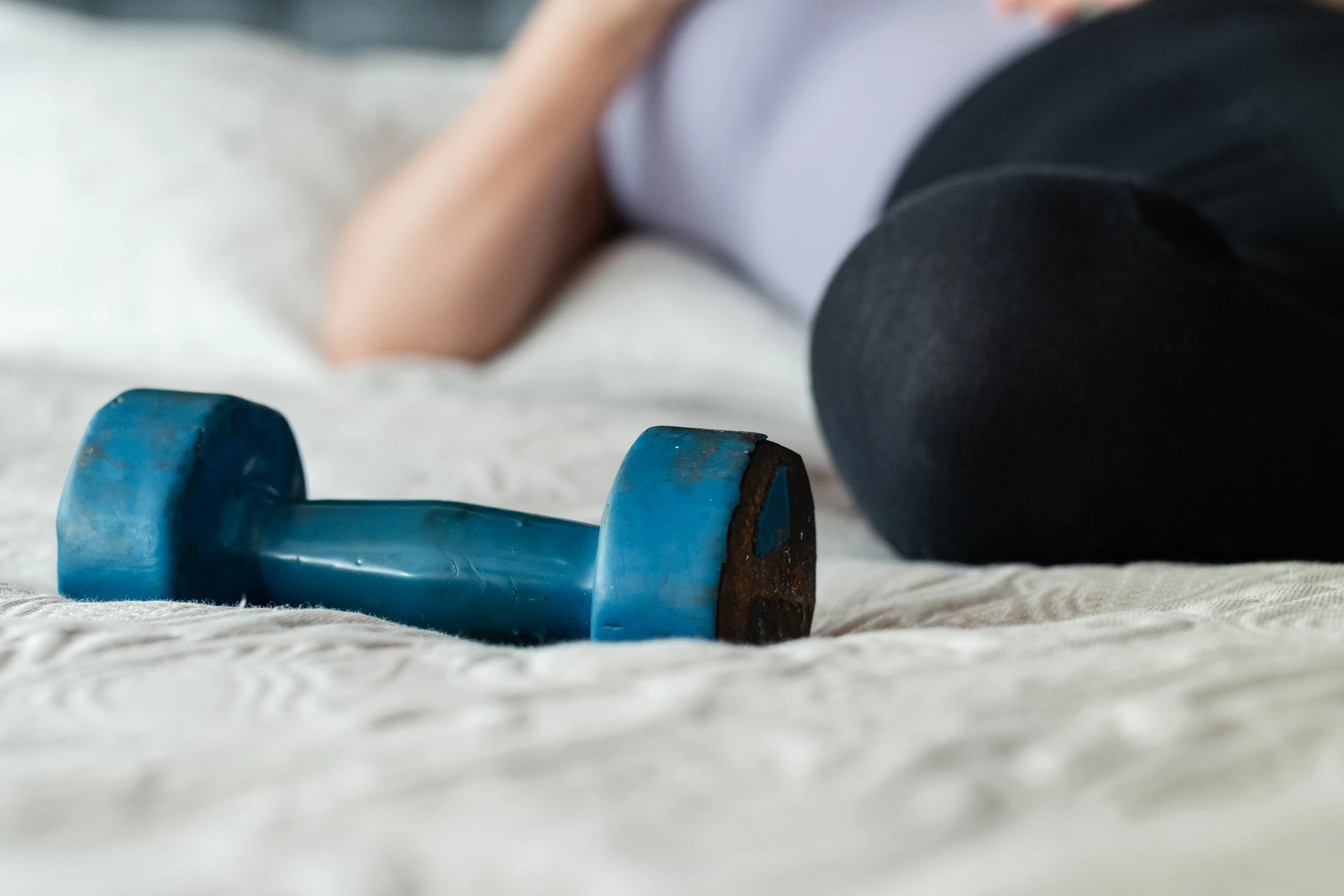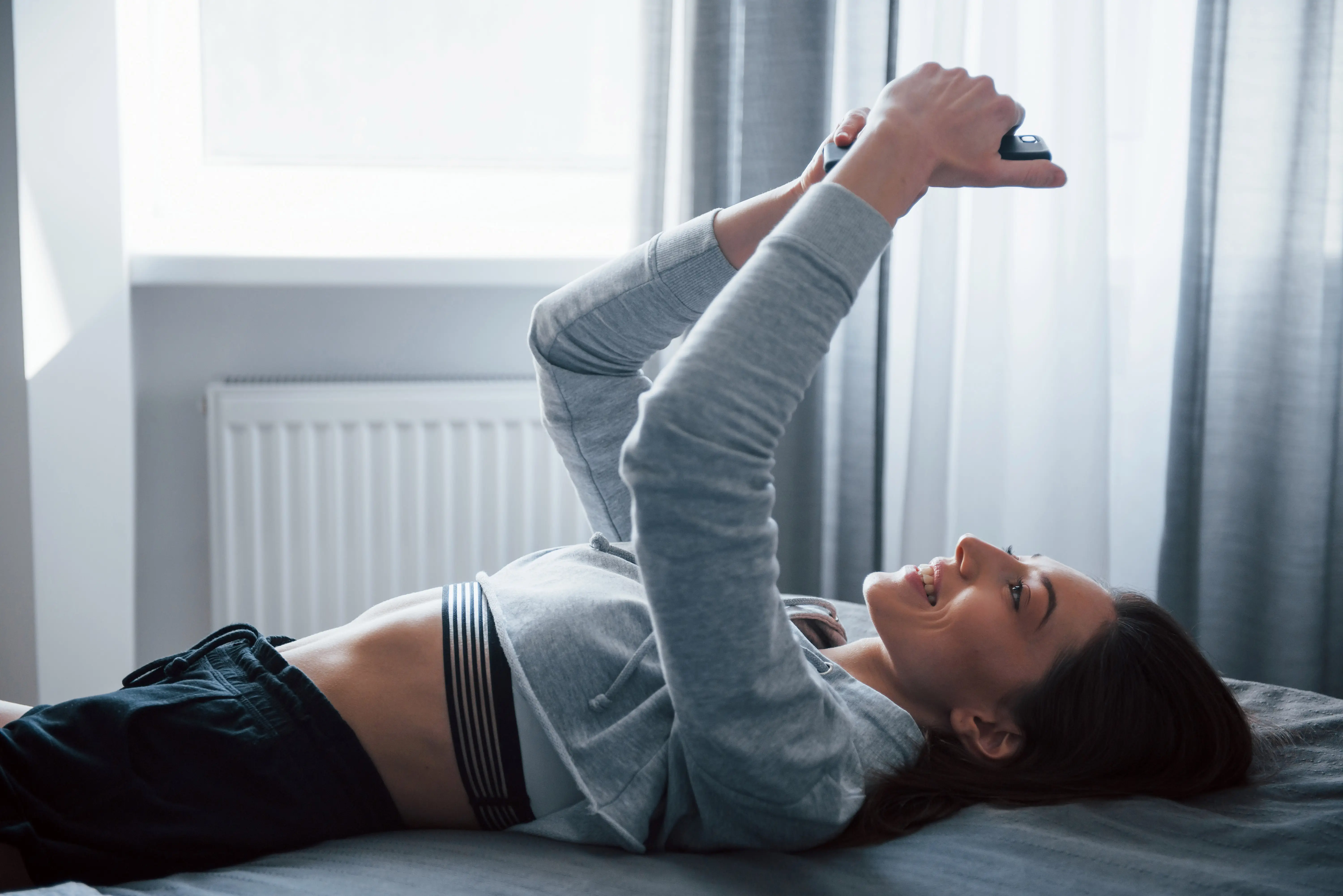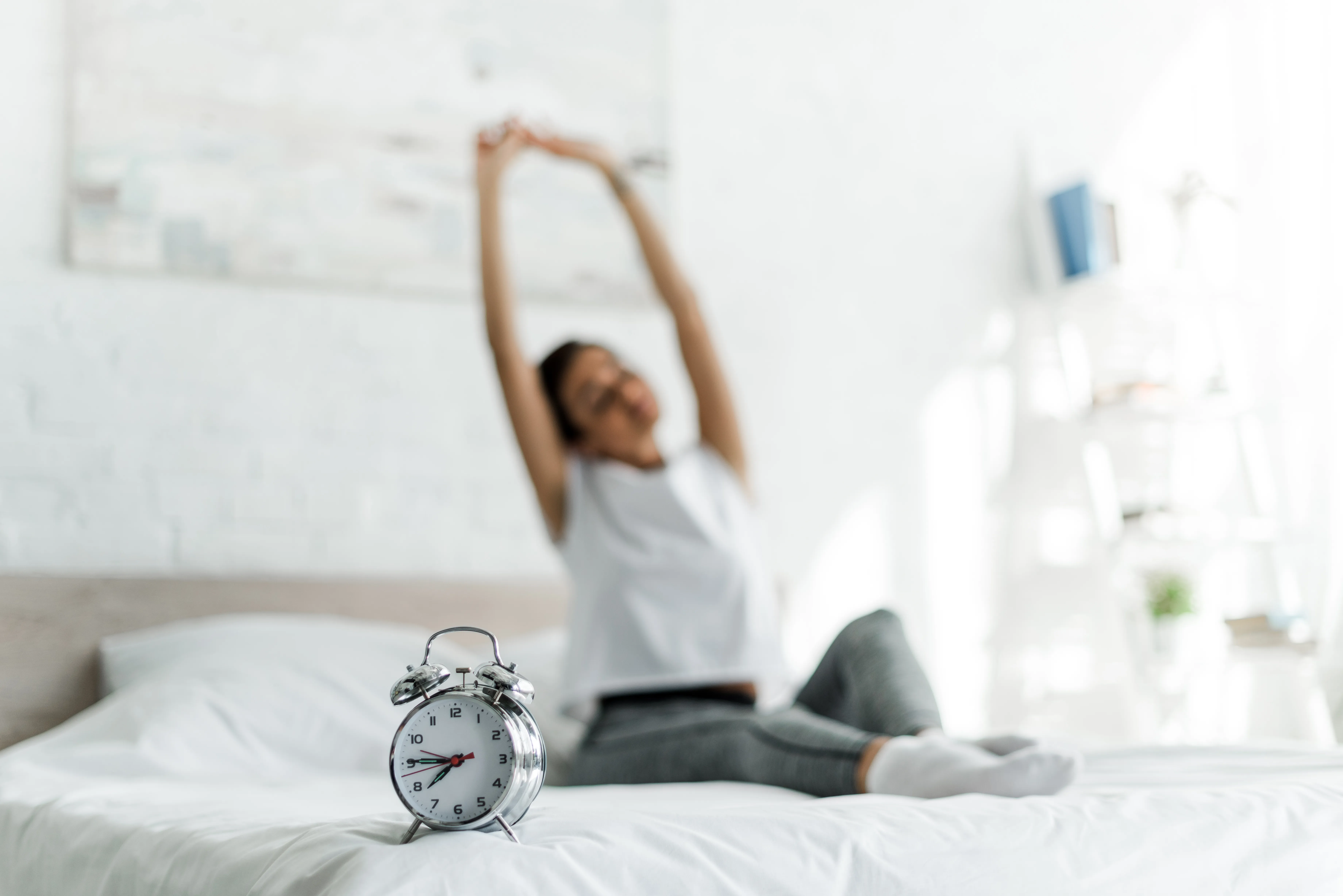When it comes to overall health, diet, exercise, and sleep are often viewed as separate aspects of wellness. However, they are deeply interconnected, each playing a crucial role in how your body functions and how you feel daily.
A well-balanced diet provides the energy and nutrients needed for physical activity and quality rest, while regular exercise supports metabolism, cardiovascular health, and sleep quality.
In this article, we will dive deep into the relationship between these three pillars of health that can help you make smarter lifestyle choices, leading to better overall well-being.
How Diet Affects Sleep Quality

What you eat and drink plays a crucial role in the quality of your sleep. Certain foods can promote better sleep and melatonin production, while others can disrupt sleep by stimulating the nervous system or causing digestive discomfort.
Best Foods for Better Sleep
- Complex Carbohydrates: Whole grains like oatmeal, brown rice, and quinoa help increase serotonin levels, promoting relaxation.
- Lean Proteins: Turkey, chicken, and fish (especially salmon and tuna) contain tryptophan, which aids melatonin production.
- Dairy Products: Milk, yogurt, and cheese provide calcium, which helps the brain use tryptophan to produce sleep-inducing hormones.
- Nuts and Seeds: Almonds, walnuts, and pumpkin seeds are rich in magnesium and melatonin, both essential for better sleep.
- Fruits: Cherries, kiwis, and bananas contain natural melatonin and other nutrients that support sleep.
- Herbal Teas: Chamomile, valerian root, and peppermint tea have calming effects that can improve sleep quality.
Foods and Drinks That Disrupt Sleep
- Caffeine: Found in coffee, tea, chocolate, and energy drinks, caffeine stimulates the nervous system and delays sleep.
- Alcohol: While it may induce drowsiness, alcohol disrupts deep sleep and increases nighttime awakenings.
- Spicy Foods: Can cause acid reflux, nausea, and digestive discomfort, making it harder to fall asleep.
- High-Sugar Foods: Sugary snacks and drinks can cause blood sugar spikes, leading to energy crashes and sleep disturbances.
- Fatty or Fried Foods: Heavy meals take longer to digest, potentially causing discomfort and disrupting sleep.
- Excessive Fluids Before Bed: Drinking too much water before bed can lead to frequent trips to the bathroom, interrupting sleep.
The Impact of Exercise on Sleep Quality

Regular physical activity is one of the most effective ways to improve sleep quality. Exercise helps regulate the body's natural sleep-wake cycle, reduces stress, and enhances overall relaxation.
How Physical Activity Helps You Sleep Better
- Reduces Stress and Anxiety: Exercise lowers cortisol levels, making it easier to relax and fall asleep.
- Increases Sleep Duration: Regular movement helps regulate circadian rhythms, leading to longer and more restful sleep.
- Improves Deep Sleep: Exercise enhances slow-wave (deep) sleep, which is essential for physical and mental health.
- Reduces Insomnia Symptoms: People who exercise regularly often experience fewer sleep disturbances like insomnia and fall asleep faster.
Best Types of Exercise for Sleep Improvement
- Aerobic Exercise: Activities like walking, jogging, cycling, and swimming help regulate sleep hormones.
- Strength Training: Resistance exercises improve overall body function and help manage stress, promoting better sleep.
- Yoga and Stretching: Gentle yoga movements and breathing exercises promote relaxation and prepare the body for sleep.
- Tai Chi and Meditation: These mind-body exercises help reduce stress and enhance sleep quality.
When is the best time to exercise for sleep?
- Morning or Early Afternoon: Exercising earlier in the day can help regulate your circadian rhythm and boost energy levels.
- Evening Workouts (with Caution): Light exercise, such as yoga or stretching, can be beneficial before bed. However, intense workouts too close to bedtime may increase heart rate and adrenaline levels, making it harder to fall asleep.
- Find What Works Best for You: Everyone responds differently to exercise timing. If evening workouts don’t disrupt your sleep, they may still be beneficial.
The Relationship Between Sleep and Diet/Exercise

Sleep is often considered the "third leg" of the wellness stool, supporting both exercise and diet. Inadequate sleep, on the other hand, can undermine both physical performance and healthy eating habits.
Hormonal Regulation of Appetite
Several hormones are involved in regulating hunger and satiety (fullness), and sleep deprivation can disrupt the balance of these hormones, leading to increased appetite and poor food choices. Ghrelin, which is known as the "hunger hormone," stimulates appetite. When you don’t get enough sleep, ghrelin levels rise, making you feel hungrier throughout the day.
Leptin is a hormone that signals fullness to the brain. Sleep deprivation lowers leptin levels, reducing satiety and increasing the likelihood of overeating.
Cravings for Unhealthy Foods
Sleep deprivation leads to a greater appetite and influences the types of foods you crave. When you’re tired, your brain often craves comfort foods or those high in sugar and fat. These foods can give a temporary energy boost, but they can also lead to weight gain and contribute to poor nutritional choices.
Sleep-deprived individuals tend to seek quick energy sources, such as sweets and processed carbohydrates, leading to unstable blood sugar levels.
Fatigue impairs the brain's prefrontal cortex, the area responsible for self-control, making it harder to resist unhealthy foods.
Metabolic Changes
Chronic sleep deprivation can harm your metabolism. When you don’t sleep well, it can interfere with the way your body processes and stores energy, potentially leading to weight gain and obesity.
Poor sleep reduces insulin sensitivity, increasing the risk of type 2 diabetes and weight gain.
Sleep deprivation alters how the body breaks down and stores fat, leading to an increased risk of obesity.
Muscle Recovery and Repair
Sleep is a critical time for the body to recover from physical exertion. During deep sleep (particularly during stages of slow-wave sleep), the body undergoes processes that repair tissues, build muscle, and restore energy reserves.
Sleep is a crucial time for the body to rebuild and strengthen muscles after exercise. Deep sleep stimulates the release of human growth hormone (HGH), which is essential for muscle repair, fat metabolism, and overall recovery.
Increased Risk of Injury
Sleep deprivation affects coordination, reaction time, and balance, all of which are essential for performing physical activities safely and effectively.
Lack of sleep impairs focus and cognitive function, leading to poor concentration, which makes it harder to stay alert during workouts. It also slows reaction time, causing delayed reflexes that increase the risk of accidents and injuries.
Additionally, inadequate sleep results in decreased endurance, reducing stamina and muscle strength, making workouts feel more challenging, and lowering overall performance.
Creating a Balanced Routine for Diet, Exercise, and Sleep

To achieve the best results for physical and mental health, it’s essential to develop a routine that integrates diet, exercise, and sleep in a way that supports each other.
How to Structure Your Day for Better Sleep and Health
Starting your day with consistency sets the tone for better sleep. Waking up at the same time every day, even on weekends, helps regulate your circadian rhythm. Exposure to natural sunlight within the first hour of waking reinforces this rhythm, signaling to your body that it’s time to be alert.
Morning:
- Get Natural Light Exposure: Start the day with sunlight to regulate your body's internal clock.
- Eat a Nutritious Breakfast: Include protein and complex carbohydrates to sustain energy.
- Move Your Body: Light physical activity, like stretching or a short walk, boosts alertness.
- Limit Early Caffeine: Avoid excessive caffeine to prevent dependency and energy crashes later.
Afternoon:
- Have a Balanced Lunch: Eat protein- and fiber-rich foods to maintain stable energy levels.
- Stay Hydrated but Reduce Caffeine: Drink water throughout the day but cut caffeine after midday.
- Take Movement Breaks: Avoid prolonged sitting to improve circulation and prevent sluggishness.
Evening:
- Avoid Sleep Disruptors: Limit caffeine, alcohol, and heavy meals before bedtime.
- Engage in Calming Activities: Read, meditate, or stretch to help the body wind down.
- Dim the Lights: Lower brightness in the evening to support melatonin production.
- Follow a Consistent Routine: Maintain a regular bedtime schedule for better sleep quality.
The Role of Hydration in Sleep and Exercise
Proper hydration is essential for both sleep and exercise, as it supports cardiovascular function, muscle recovery, and overall energy levels.
Dehydration can lead to symptoms such as dry mouth, leg cramps, and nighttime restlessness, all of which interfere with sleep quality.
For exercise, staying well-hydrated helps improve endurance, regulate body temperature, and support muscle function. The best approach is to drink water steadily throughout the day while reducing intake before bedtime to avoid frequent nighttime trips to the bathroom.
Balance Your Diet
What you eat significantly impacts your sleep. A diet rich in whole foods, lean proteins, healthy fats, and complex carbohydrates helps regulate energy levels and hormone production. Foods that promote melatonin production, such as cherries, nuts, and whole grains, can support restful sleep.
Incorporate Regular Exercise
Physical activity is one of the most effective ways to improve sleep quality, as it reduces stress, regulates energy levels, and promotes deeper sleep cycles.
Engaging in at least 30 minutes of moderate aerobic or resistance training on most days can enhance sleep duration and efficiency.
Prioritize Sleep
Recognizing sleep as a crucial pillar of health is essential for long-term well-being. Quality sleep enhances mood, memory, immune function, and physical recovery.
Prioritizing sleep means making intentional lifestyle adjustments, such as managing stress, setting boundaries with work and social commitments, and minimizing late-night screen exposure.
Set a Consistent Sleep Schedule
Maintaining a consistent sleep schedule is one of the most effective ways to improve sleep quality. Going to bed and waking up at the same time every day, even on weekends, helps regulate your internal clock. Most adults need between 7 and 9 hours of sleep per night to function optimally.
Create a Sleep-Friendly Environment
Your bedroom should be a sanctuary for sleep, free from distractions and discomfort. Keeping the room cool, dark, and quiet promotes better rest. Investing in a high-quality mattress and pillows ensures proper support for your body.
Establish a Bedtime Routine
A structured bedtime routine helps signal to your body that it’s time to wind down. Engaging in relaxing activities, such as reading, journaling, or taking a warm bath, can help ease the transition to sleep. Meditation or deep breathing exercises can calm the mind and reduce stress levels before bed.
Limit Screen Time Before Bed
Excessive screen time before bed can disrupt sleep by suppressing melatonin, the hormone responsible for sleep regulation.
The blue light emitted from smartphones, tablets, and computers tricks the brain into thinking it’s still daytime, making it harder to fall asleep. Reducing screen exposure at least an hour before bed allows melatonin levels to rise naturally.
Sleep Hygiene
Good sleep hygiene involves maintaining habits that support consistent and restorative sleep. Sticking to a regular sleep schedule, avoiding stimulants before bed, and creating a relaxing nighttime routine are all essential components.
Manage Stress Levels
Chronic stress can make it difficult to fall and stay asleep, leading to poor-quality rest and daytime fatigue. Engaging in stress-reducing activities, such as yoga, meditation, or deep breathing exercises, helps calm the mind and improve sleep.
Avoid Naps Late in the Day
While naps can be beneficial, timing and duration matter. Short naps of 20–30 minutes earlier in the day can improve alertness and cognitive function without interfering with nighttime sleep.
FAQs
How does diet impact sleep quality?
A balanced diet supports better sleep by providing essential nutrients like magnesium, tryptophan, and melatonin, which promote relaxation and sleep regulation. Eating too much sugar or caffeine close to bedtime can disrupt sleep, while consuming whole foods like nuts, fruits, and lean proteins can improve sleep duration and quality.
Can exercise help improve sleep?
Regular exercise promotes better sleep by reducing stress, regulating circadian rhythms, and increasing deep sleep stages. Aerobic activities like walking, running, or cycling improve sleep efficiency, while strength training supports muscle recovery.
How does sleep affect diet and appetite?
Sleep influences hunger-regulating hormones like ghrelin and leptin. Poor sleep increases ghrelin, which boosts appetite, while reducing leptin, which signals fullness. As a result, sleep-deprived individuals often crave high-calorie, sugary foods, leading to poor dietary choices and weight gain over time.
What foods should I eat to improve sleep?
Foods rich in melatonin, magnesium, and tryptophan support sleep. Examples include almonds, walnuts, bananas, turkey, cherries, and whole grains. Herbal teas like chamomile and valerian root can also promote relaxation. Avoiding heavy, spicy, or caffeinated foods before bedtime can further enhance sleep quality.
How does exercise affect metabolism and energy levels?
Exercise boosts metabolism by increasing muscle mass, improving insulin sensitivity, and enhancing energy production. It also helps regulate blood sugar levels, reducing energy crashes throughout the day. Morning workouts can enhance alertness, while moderate evening exercise can promote relaxation and better sleep quality.
What happens if one of these three factors is ignored?
Neglecting diet, exercise, or sleep can create a cycle of poor health. Lack of sleep leads to unhealthy food choices and low energy, reducing motivation to exercise. Poor diet and inactivity further impair sleep. Maintaining balance among all three supports physical and mental well-being, helping to break this negative cycle.
Conclusion
Achieving optimal health isn’t just about focusing on one factor—diet, exercise, and sleep work together to create a strong foundation for well-being. Eating nutritious foods, taking care of your physical health, and maintaining a consistent sleep schedule reinforce each other, helping to improve energy levels, mental clarity, and long-term health.
Karen Barnard
Karen is a Human Movement Science expert and a certified sports nutrition and massage therapist. At Sleepiverse, she combines her passion for human movement science and sleep health to educate herself and her readers about healthier sleep. In addition to writing articles, Karen manages a fitness studio offering private training, athletic conditioning, and sports massage therapy. She focuses on providing people with a holistic environment for people to reach their health goals, often incorporating stretch therapy to promote mental tranquillity and help people improve their sleep.


